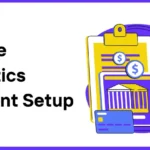In today’s digital era, having a strong online presence isn’t optional—it’s essential, especially for local businesses looking to thrive. A well-built website is often the first point of interaction between a business and its potential customers. But here’s the catch: not all websites are created equal. The platform you choose to build your website can significantly impact how effectively you connect with your local audience.
Website platforms help businesses create and manage their websites without requiring extensive technical knowledge. Choosing the right platform can enhance your business’s visibility, simplify customer interactions, and improve overall user experience. Conversely, making the wrong choice could limit growth opportunities and hurt your reputation.
This article will help you choose the best website platform for your local business. Whether you’re just starting or planning to revamp your current site, this comprehensive guide will equip you with the knowledge to make informed decisions.
Why is this important?
- The right platform boosts customer engagement.
- It ensures your site is mobile-friendly and optimized for local search rankings.
- It simplifies website maintenance and reduces long-term costs.
Let’s discover how to make your local business stand out with the perfect website platform!
Why a Good Website Platform is Crucial for Local Businesses
Choosing the best website platform for small businesses is not just about building a site; it’s about creating an experience that attracts and retains customers. A user-friendly platform ensures your website is easy to navigate, helping potential customers find what they need quickly and encouraging them to stay longer.
Impact on Customer Experience:
Imagine a local café using a platform with simple navigation and a seamless online ordering system. Customers can easily browse the menu, order, and pay without hassle. This convenience improves their experience and increases the likelihood of repeat business.
Enhancing Brand Visibility:
An SEO-friendly platform can help your website rank higher in local search results. For instance, a boutique using a platform optimized for keywords like “best clothing store near me” can attract more customers actively searching for its services.
Key Features of a Good Platform:
- Mobile Responsiveness: Ensures your site looks and works well on smartphones, where most local searches begin.
- SEO Tools: Boost your business’s visibility on search engines like Google.
- Customization Options: Helps create a unique brand identity.
Choosing the right platform isn’t just an investment in a website; it’s a step towards building long-term relationships with customers and establishing a strong presence in your local market.
Key Features to Look for in a Website Platform
The right website platform is essential for creating a functional, engaging, professional website for your local business. The ideal platform should offer tools and features that simplify management and help your business stand out in the competitive local market. Let’s explore the key features to look for in a website platform.
- 1. Ease of Use and Intuitive Design
A platform should be simple enough for non-technical users to manage. Intuitive drag-and-drop tools, pre-built templates, and straightforward controls save time and effort. For instance, if you run a bakery, you want to update your menu or upload photos without needing a developer.
- 2. SEO Tools for Local Rankings
Effective platforms include built-in SEO tools to help your business rank higher in local searches. These tools assist in optimizing page titles, meta descriptions, and keywords such as “best bakery in [city].” This feature ensures your business gets discovered by potential customers nearby.
- 3. Mobile Responsiveness
With more than half of web traffic coming from mobile devices, having a platform that offers mobile-friendly designs is non-negotiable. Mobile responsiveness ensures your site looks great and functions perfectly on all devices, making it easier for on-the-go customers to interact with your business.
- 4. Affordable Pricing Options
Affordable website platforms for local businesses should offer a variety of pricing tiers to match your budget. Look for plans that balance cost with essential features, especially if you’re just starting.
- 5. Integration with Marketing Tools
Integrations with email marketing tools, social media, and analytics platforms are crucial. These tools allow you to connect with your audience, track website performance, and plan effective campaigns.
Focusing on these features ensures your chosen platform aligns with your business goals and supports your long-term success.
Comparing Popular Website Platforms for Local Businesses
When selecting the top website builders for local businesses, understanding the strengths and weaknesses of popular platforms can help you make an informed decision. Here’s a comparison of some widely used platforms based on cost, customization, and ease of use.
- 1. WordPress
WordPress is known for its flexibility and customizability. It offers thousands of plugins and themes, perfect for businesses that need unique features or complex functionality. However, it has a steeper learning curve and might require technical expertise, which can be challenging for beginners. - 2. Wix
Wix is a user-friendly platform with drag-and-drop functionality. It offers a variety of attractive templates and is ideal for those who want a quick, easy-to-set-up website. While it’s excellent for small- to medium-sized businesses, it may not scale well for larger or more complex projects. - 3. Squarespace
Squarespace is popular for its sleek and modern design templates. It’s an all-in-one platform that includes hosting, making it a hassle-free option. However, it offers less flexibility than WordPress, which might be limiting for businesses that require extensive customization. - 4. Shopify
Shopify is the best choice for e-commerce businesses. It provides robust tools for managing online stores, secure payment options, and excellent customer support. However, transaction fees for third-party payment gateways apply, and the focus on e-commerce makes it less suitable for non-retail businesses. - 5. Weebly
Weebly is a budget-friendly and straightforward platform ideal for startups or small businesses. While it’s easy to use, its features and design options are more essential than others, making it less suitable for businesses with complex needs.
Each platform offers unique benefits, so choosing the right one depends on your business goals, budget, and technical expertise.
Steps to Choose the Right Website Platform
Selecting the right website platform involves careful consideration of your business’s unique requirements. Here’s how to choose the right website platform in a few simple steps:
- Assess Your Business Goals and Budget
Determine your website’s primary purpose—whether it’s to showcase services, sell products, or attract leads. Align your choice with your budget while ensuring the platform meets your long-term goals. - Evaluate Scalability and Customization Options
Look for platforms that can grow with your business. Choose one that offers flexibility to add features or redesign as your needs evolve. - Test Usability
Opt for a platform that’s easy to use, mainly if you have limited technical skills. Try demos or free trials to ensure it suits your comfort level. - Check Available Customer Support
Reliable customer support is vital for troubleshooting issues. Prioritize platforms with responsive assistance via chat, email, or phone.
Following these steps, you can confidently choose a platform that aligns with your local business’s needs while keeping future growth in mind.
Conclusion
Selecting the right website platform for your local business is crucial to building a strong online presence and driving success. A well-chosen platform can enhance user experience, improve search visibility, and streamline operations.
To make the best decision, remember to:
- Define your business goals and budget.
- Explore platforms offering scalability and customization.
- Evaluate usability and customer support.
By comparing your options carefully, you can choose a platform that aligns perfectly with your needs. Start your journey today, and let the right website platform be the foundation of your business’s growth and success!






Leave a Reply